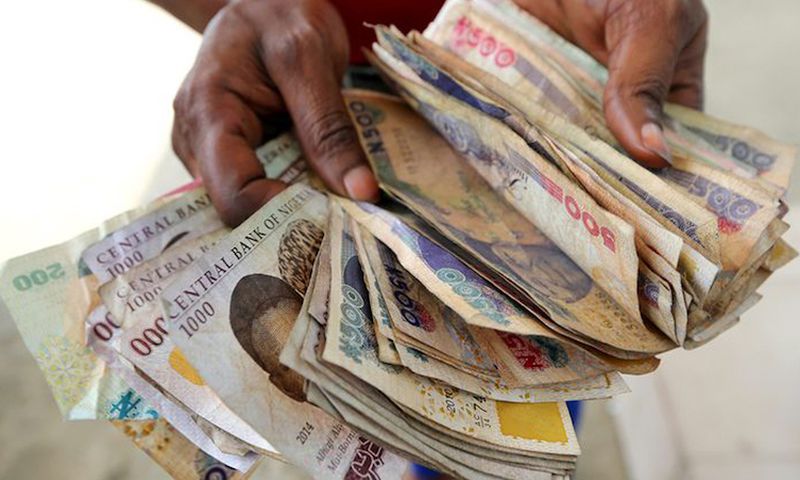Saving money is never easy, especially if you’re living on minimum wage in Nigeria.

For years and years, workers struggled with ₦30,000 as the national minimum wage. A figure that barely covered basic needs, let alone allowed for savings. But in 2024, the Federal Government approved a new minimum wage of ₦70,000.
The increase came after years of protests, negotiations, and heated debates between labour unions and the government. Many argued that ₦30,000 was unrealistic with the rising cost of food, transportation, and housing. Inflation hit record highs, and the naira’s value kept dropping.
Even with the increase, countless Nigerians still struggle to make ends meet. ₦70,000 might seem like a decent amount, but the reality is that it still doesn’t stretch very far. How then can a low-income earner save ₦50,000 when they can barely feed?
How to save ₦50,000 in 3 months
How can you realistically save ₦50,000 in three months? That’s approximately ₦16,667 per month, which may sound a bit difficult when you consider all the expenses that come with living in Nigeria.
That’s tough, but not impossible if you adjust your spending. Start by tracking every kobo you spend for a week.

Write down everything: transport, food, airtime, even that pure water you buy daily. You’ll be shocked how small expenses add up. Once you see the numbers, you can identify where to cut back.
Cutting costs without suffering
1. Food & cooking: Cooking at home is a great way to save money. If you don’t already have a meal plan, now might be a good time to start one. Buying bulk ingredients can help you save money in the long run, and cooking in batches allows you to stretch your meals throughout the week.
2. Transportation: Transportation is one of the biggest expenses for Nigerians, particularly in cities like Lagos or Abuja. If you spend ₦1,000 daily on transport, that’s ₦30,000 monthly. Consider walking short distances, carpooling with colleagues, or using public transport.
3. Airtime & data: Do you really need ₦5,000 worth of data every month? Switch to cheaper plans or use free Wi-Fi at work or cafes.
Note: Adjust these amounts based on your actual expenses and priorities.
4. Automate your savings: It’s easy to say you’ll save, but without discipline, it’s tempting to spend whatever money is left over. One effective way to ensure you save is to automate the process.
If you have a bank account with an automatic savings feature, you can set up a small, consistent transfer into a separate savings account every month. If not, you can still create the habit of physically saving the same amount of money each week.
Consider increasing your income
Many Nigerians have turned to side hustles like selling small goods, offering services such as tutoring or consulting, or even leveraging skills in digital marketing or graphic design to make extra cash.
For example, if you make an extra ₦5,000 a week through a side hustle, that’s an additional ₦20,000 in a month and ₦60,000 over three months.
Saving ₦50,000 in three months on minimum wage is definitely doable if you follow a plan and stay disciplined. It may requires making some small sacrifices, but with a little effort, you can absolutely reach your goal.
We can all admit that Africa is one continent with deep history, powerful kingdoms, rich cultures, and as many as 54 countries. But then, some of these countries have not been around for that long.
A few, however, have stood the test of time. Let’s take a look at five of the oldest countries on the continent.
1. Liberia (1847)
Liberia is actually the oldest republic in Africa. It was founded by freed slaves from the U.S. who wanted a fresh start back on the continent. They arrived in the early 1800s and by 1847, Liberia declared independence.
It’s one of the few African countries that wasn’t colonized in the traditional sense, and its capital, Monrovia, is named after a U.S. president James Monroe.
2. South Africa (1910)
South Africa’s story is complicated. It became a formal union in 1910 under British rule, but full independence didn’t happen until after apartheid ended in 1994.
Still, the early 1900s marked a turning point when the idea of South Africa as a nation began to take shape.
3. Egypt (1922)
Egypt has been around for thousands of years with all its pharaohs, pyramids, and all that. But modern Egypt became independent from Britain in 1922.
Since then, it has played a major role in both African and Middle Eastern politics. It’s ancient, it’s influential, and it’s still very much a powerhouse.
4. Ethiopia (1941)
Ethiopia is legendary. It’s one of the only African countries that successfully resisted colonization. Yes, Italy tried in the 1930s, but Ethiopia pushed back and reclaimed its independence.
This country has a rich imperial history, and even before modern borders, it was home to powerful empires and rulers like Emperor Haile Selassie.
5. Libya (1951)
Libya also makes it to one of the oldest countries in Africa. This country, which has its capital in Tripoli, gained independence from the United Kingdom in 1951.
Libya was popular for its constitutional rule many years ago but it experienced political changes under Muammar Gaddafi’s leadership from 1969 to 2011.